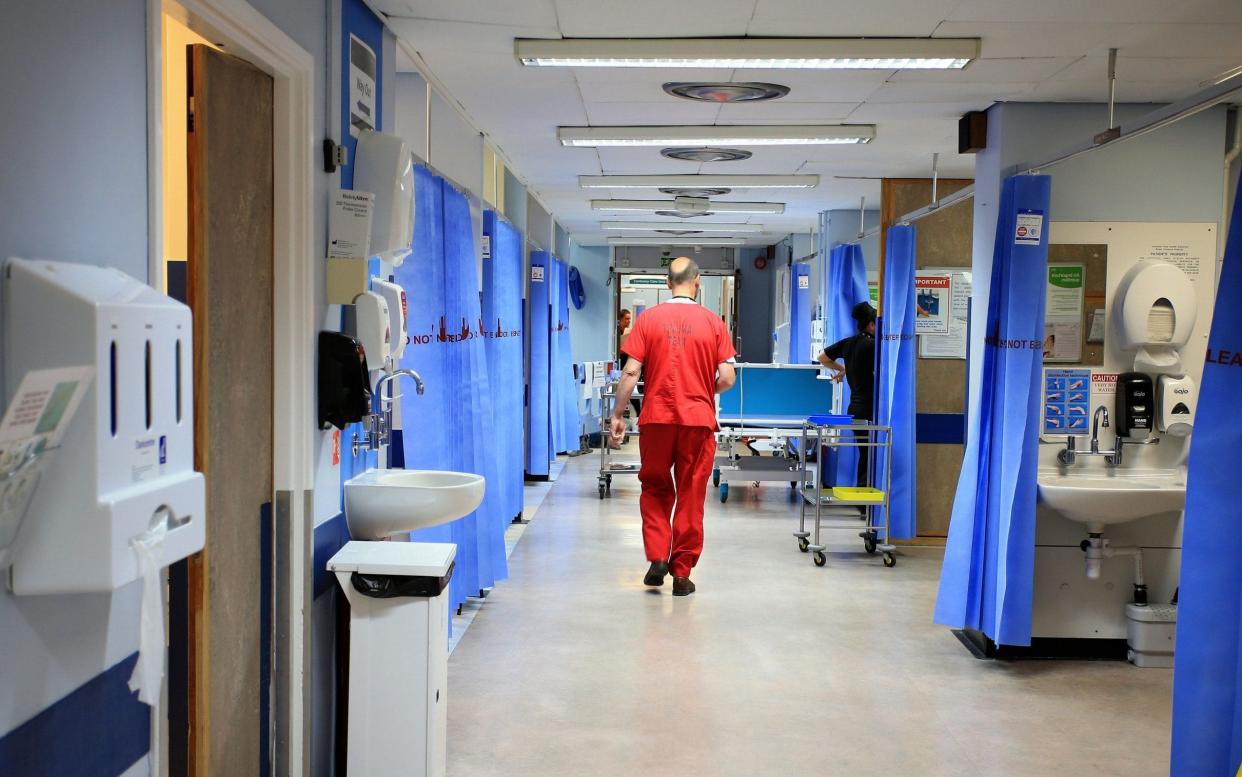Most NHS trusts missing cancer targets as waiting times soar

Almost two in three trusts are missing NHS cancer targets, amid warnings that patients are being put at risk as waiting times grow longer.
MPs said patients were facing “unacceptable” and “agonising” delays, with more than half of trusts also forcing patients into long waits for surgery.
The report by the Public Accounts Committee accuses health bodies of “a lack of curiosity” about the risks that patients would come to harm as result of increasingly long waiting times.
Last month the Telegraph revealed a doubling in NHS negligence payments linked to delays and misdiagnosis, over a five year period. In 2017/18 the NHS paid out £655 million in compensation for such cases – an increase from £327 million in 2013/14.
The report, published on Wednesday, warns that a key target for cancer patients to receive treatment within two months has not been hit since 2013. Last November, just 38 per cent of trusts achieved the standard.
Meanwhile, 44 per cent of trusts hit targets to carry out planned surgery within 18 weeks.
MPs expressed concern that NHS England has removed sanctions and penalties for failing to miss this standard, with more than 4.2 million patients now on waiting lists.
“More and more patients are being let down by the NHS’s continued failure to meet deadlines for waiting times,” the report warns.
“The national health bodies lack curiosity about the impact for patients of longer waits and how often this leads to patient harm. When waiting times are longer, patients may experience additional pain, anxiety and inconvenience. There is also a risk that longer waiting times may lead to patient harm through, for example, the deterioration of a medical condition.”
MPs said that although trusts could carry out reviews of individual cases, there was no national data collection.
Trusts are only asked to review harm to those waiting at least a year for planned treatment, and findings are not reviewed across the country.
Meg Hillier, PAC chairman said: “It is unacceptable that the proportion of patients being treated within NHS waiting times standards is continuing to spiral downwards; NHS England and the Department of Health & Social Care must regain control.
“The impact on individuals of protracted waiting times cannot be ignored. As one charity told us, the wait for cancer testing is ‘agonising… it is essential that a definitive answer is given as soon as possible, to either provide peace of mind or to allow treatment to begin at the earliest stage.’
She said MPs were “troubled” by the approach of health officials to waiting times, and their lack of understanding about the impact it could have on patient harm.
NHS England is currently carrying out a review of waiting times, which could see the 18 week target axed, along with the flagship four hour target for Accident & Emergency departments.
Ms Hillier said: “NHS England’s review of waiting times is now more crucial than ever. However, this cannot be an opportunity for standards to slip, any changes must protect and improve patient outcomes.”

